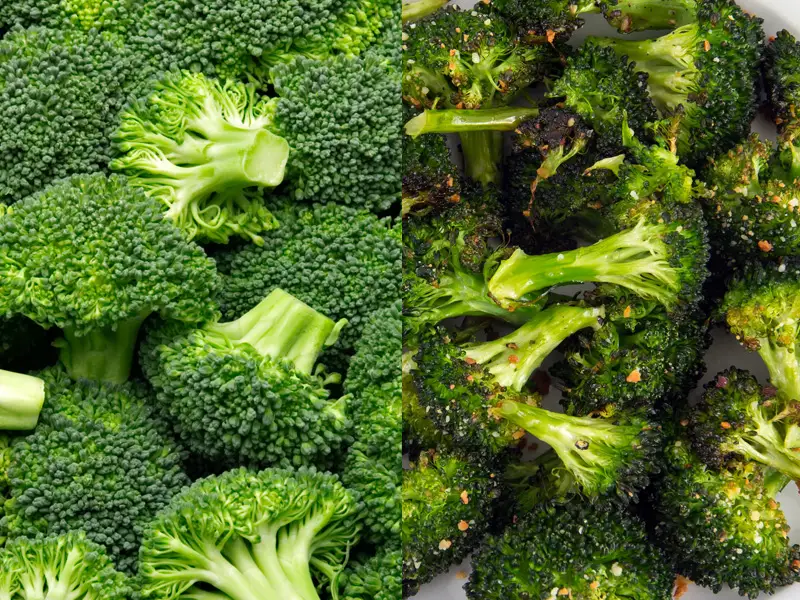“The truth is, you’ll get a better blend of antioxidants simply by eating a variety of familiar greens, along with fresh herbs and spice“
In a world of ever-evolving “superfoods,” it’s easy to think the next magical powder holds the key to perfect health.
But when it comes to antioxidants—the chemical defenders that help keep our bodies healthy—the truth is refreshingly simple:
Skip the supplement and go for fruits and vegetables.
How and what should you eat to get antioxidants?
If you are in a hurry, scroll to the end for our Action Takeaways.
🌾 1. What Are Antioxidants and Why Do We Want Them?
Antioxidants are your body’s internal bodyguards, protecting your cells from damage caused by unstable molecules called free radicals.
Free radicals are a natural byproduct of metabolism. But they can cause problems when their levels get too high—leading to oxidative stress, which plays a role in aging, inflammation, and chronic diseases like cancer and heart disease.
Two key harmful effects antioxidants help fight:
- Lipid oxidation – when fats in your body go rancid, damaging cells.
- Advanced glycation end-products (AGEs) – compounds formed when sugar binds to proteins or fats, contributing to aging and inflammation.
Antioxidants “throw themselves in the line of fire,” neutralizing these harmful effects.
That’s why a diet rich in antioxidants is considered one of the best long-term investments for your health.

❌ 2. The Problem with Antioxidant Supplements
Walk into any health store, and you’ll see shelves lined with antioxidant supplements: goji, ginseng, acai powder…
But here’s the thing:
Most of these are marketing more than magic.
While these products promise concentrated antioxidant power, what they don’t tell you is:
- They’re often made from the same fruits and vegetables you find in the produce section.
- Processing (drying, heating, bottling) degrades antioxidant potency.
- Supplements may lack the complex balance of nutrients found in whole foods.
- Some concentrated antioxidants in pill form can have side effects or disrupt your body’s natural balance.
Instead of reaching for capsules, reach for something alive, colorful, and edible.

🍎 3. Where to Get Antioxidants Naturally
You don’t need magical supplements to get your antioxidants. Here’s how to get antioxidants naturally:
- Fresh greens like spinach, arugula, and lettuce
- Herbs and spices like basil, thyme, garlic, and dill
- Pungent veggies like broccoli, celery, and peppers
- Fresh fruits like berries, apples, and grapes
Whole foods contain a variety of antioxidants—flavonoids, terpenes, coumarins, retinoids, and more—all working together.
Why do plants contain antioxidants?
Plants make these compounds to protect themselves from oxygen damage. When we eat them fresh, we consume these antioxidants too.
Here’s a quick and easy way to get antioxidants:
Grow some herbs on your balcony. Cheap, tasty, and full of potent nutrition.

🔥 4. Go for Flavor—It’s a Clue
How do you know which plant is rich in antioxidants?
You can taste it.
Plants that are highly nutritious tend to have an intense flavor.
Bitter, spicy, or pungent vegetables (like arugula, garlic, peppers) have higher concentrations of antioxidants and phytonutrients.
In contrast, bland or starchy vegetables (like potatoes or turnips) tend to be lower in antioxidants per bite.
If it lights up your tongue, it’s most likely high in antioxidants.

🧂 5. How to Eat Veggies for Antioxidants—Raw or Cooked?
On one hand, fresh, raw vegetables preserve delicate antioxidants and vitamins that can be destroyed by heat.
On the other hand, many nutrients in plants are locked inside cellulose — the fibrous material that makes plants crisp and firm.
Our digestive systems often struggle to break down cellulose, and cooking vegetables helps break down their cellulose walls.
So should we eat veggies raw or cooked?

Here’s the balanced truth:
🌱 Raw is Best For:
- Leafy greens (spinach, lettuce, arugula)
- Herbs (parsley, cilantro, basil)
- Tender fruits and vegetables (berries, peppers, cucumbers)
Raw foods preserve delicate antioxidants and water-soluble vitamins that cooking might destroy.
🍽️ Cooked is Better For:
- Dense or high-cellulose veggies (carrots, broccoli, mushrooms)
- Foods with hard-to-access nutrients (like beta-carotene in carrots)
Cooking breaks down cellulose and increases bioavailability.
For instance, only 1% of vitamin A precursors in raw carrots are absorbed—but cooking raises that to 30%!

The ideal strategy?
Eat a mix of raw AND cooked vegetables
For example:
- Add raw veggies and herbs to salads and sandwiches
- Cook dense veggies gently—steam, fry, or microwave them at moderate heat.
- Pair cooked meals with something fresh to balance it out.
Freshness always matters—whether raw or cooked.
The longer food sits after harvest, the more nutrients it loses. Local, in-season produce is the best option.
✅ Actionable Takeaways
- Choose fresh, whole foods over supplements
- Eat a variety of raw and lightly cooked plants
- Eat raw herbs, salad leaves for natural antioxidants.
- Cook dense or high-cellulose veggies (like carrots, broccoli) gently to make their nutrients more absorbable.
- Buy local and eat seasonal when possible. Fresher produce = more antioxidants and better taste.

Leave a Reply